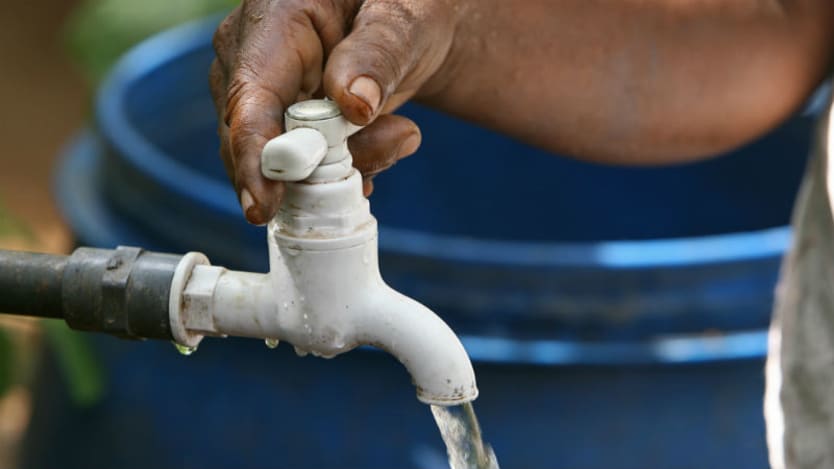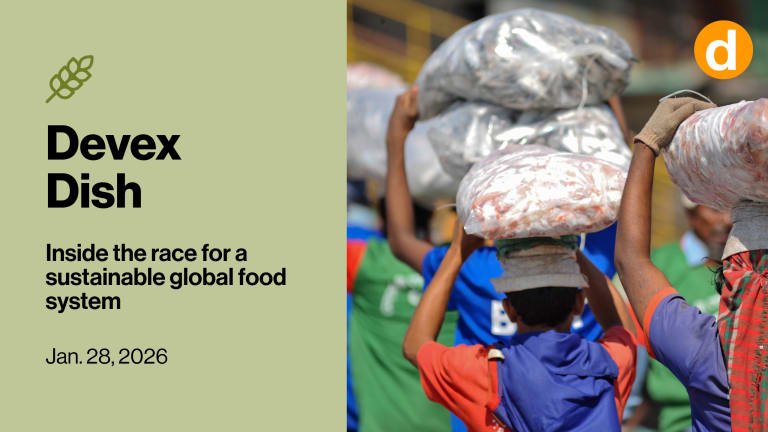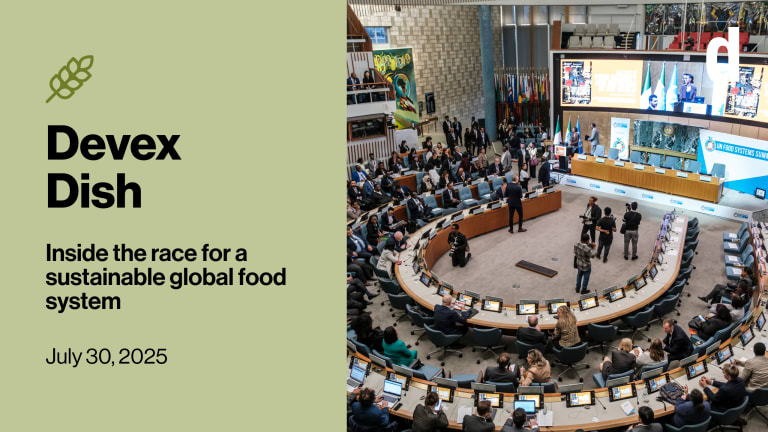
WASHINGTON — Ensuring equal access to water is a key component to maintaining societal stability and preventing conflict in fragile states, according to a new report by the Chicago Council on Global Affairs.
Accessible, affordable water access is at the center of ensuring the world’s growing population — which, in 2019, includes approximately 821 million food-insecure people and 150 million malnourished children, according to the report — has enough to eat. The report, which noted that “as water scarcity intensifies, we must remember that without water, there is no food, and without food, there is no security,” found that communities, where water access is disputed or becomes a point of tension, can be a dangerous multiplier for underlying conflict.
“It is pretty clear that competition for water [and] growing scarcity in fragile states does bring up the potential that water becomes a significant exacerbating or multiplier effect on long-standing sources of conflict and could gravely worsen global security,” said Mark Rosegrant, a research fellow emeritus at the International Food Policy Research Institute and lead author of the Chicago Council report.
This year the report — released annually at the Chicago Council’s flagship food security conference in Washington, D.C. — focused on water and the important role it plays in ensuring adequate food, nutrition, health, and security for populations around the globe. It is important to refocus global attention on access to water as climate change impacts are worsening, Rosegrant said.
The report noted that good-quality water is projected to be increasingly scarce, which further strains food production systems that are already impacted by climate and weather changes.
“The increased demands from rapidly growing urban populations create an even more alarming scenario, where water scarcity leads to increasing levels of insecurity around the world,” the report said.
Rosegrant pointed to Syria, while access to water is not solely responsible for starting the country’s nearly decade-long civil war, it contributed to unrest among the population: Between 2006 and 2011, droughts in northeastern Syria caused substantial crop failure and livestock loss and increased rural to urban migration because parts of the rural population could no longer make a living.
“That put greater pressure on the system, creating system dissatisfaction with government performance, so there’s a multiplier there,” Rosegrant said. “I think trying to take that multiplier out of the equation is very important, therefore you’re building that greater resilience.”
The United States has a particular role to play in mitigating these effects, and the Chicago Council report included several recommendations for U.S. policymakers.
U.S. water policy is governed by the “2017 U.S. Government Global Water Security Strategy,” a congressionally mandated report that identifies the role that 17 U.S. government agencies play in ensuring water access. It specifically notes that the State Department “views water security as an issue of national security,” and finds that by 2050, some parts of the world could experience economic decline as a result of pollution, decreasing water supplies, and increasing demand.
“For many countries, these losses may be as high as 15 percent of GDP, which could significantly increase state fragility and the risk of failure,” the water security strategy said.
The Chicago Council report recommends that Congress further analyze the role of food and water insecurity on regional stability by requesting a comprehensive report on the topic. It notes that competition over growing water scarcity has “already triggered local conflicts and will magnify tensions in countries and regions of strategic importance to the United States in the future.”
The U.S. must leverage its technology, remote sensing, and data capabilities to provide a more sophisticated analysis of tracking changes in water use and supply, Rosegrant said. The systems currently in place need finer levels of linking weather data to where food is scarce or where institutions are already weak and need more help responding to water shocks so that contingency plans can be developed ahead of time.
The U.S. also has a role to play in incentivizing the private sector to invest in rural infrastructure that can safeguard water supply and increase the institutional capacity of local authorities. Strengthening this infrastructure can increase the overall confidence a population has in its government, which in turn strengthens society’s ability to withstand shocks, Rosegrant said.
“If you can build that confidence at that local level of government, then I think people are also then willing to go with the policies and go with the necessary actions that are needed as some scarcity starts to develop,” Rosegrant said. “Mutual confidence between the population and local and regional governments go a long way in building a little more resilience among people and amongst the government to deal with these kinds of issues.”








